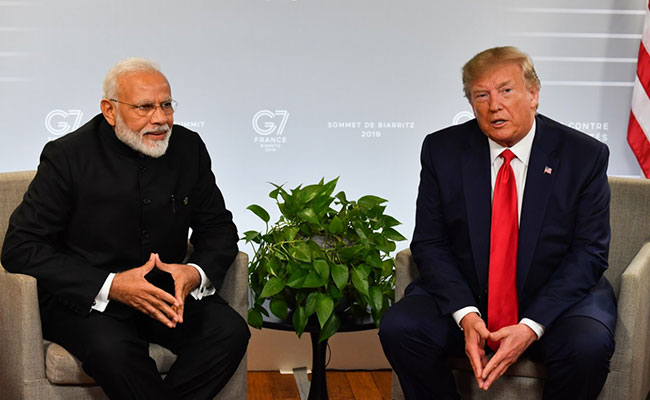

Donald Trump has once again claimed that his administration prevented a potential nuclear war between India and Pakistan, stating that he used the threat of halting trade to de-escalate tensions. This claim follows a period of heightened conflict between the two nations, triggered by cross-border attacks after Operation Sindoor, which India initiated in response to a terror attack.
According to Trump, he told both countries that the U.S. would engage in trade with them only if they ceased hostilities. He highlighted the gravity of the situation, emphasizing that the conflict could have resulted in a "bad nuclear war" with millions of potential casualties. He expressed pride in his administration's role in brokering what he believed to be a "permanent" ceasefire between the two nuclear-armed nations. Trump specifically thanked Vice President JD Vance and Secretary of State Marco Rubio for their efforts in achieving the ceasefire.
However, these claims have been met with skepticism and direct contradiction from sources within the Indian government. These sources maintain that the Directors General of Military Operations (DGMOs) of India and Pakistan reached an understanding directly, without any third-party mediation. They also stated that there was no mention of trade during discussions between Indian and U.S. officials regarding de-escalation.
Shortly after Trump's remarks, Prime Minister Narendra Modi addressed the nation, focusing on India's firm stance against cross-border terrorism and its response through Operation Sindoor. Modi declared that India would no longer tolerate "nuclear blackmail" from Pakistan. He asserted that terror and talks cannot coexist, signaling India's intent to strike at Pakistan's terror infrastructure in response to attacks. Modi also conveyed that any future discussions with Pakistan would center on the issue of terrorism and Pakistan-occupied Kashmir.
Modi emphasized that Operation Sindoor demonstrated India's resolve and translated its intentions into action, resulting in the elimination of numerous terrorists in Pakistan and Pakistan-occupied Kashmir. He stated that India's response to any future attacks would be determined on its own terms, targeting the roots of terrorism.
The conflicting narratives from Trump and the Indian government raise questions about the extent of U.S. involvement in de-escalating the conflict and the accuracy of Trump's claims regarding trade leverage. The situation remains complex, with both India and Pakistan maintaining heightened alert levels and closely monitoring each other's actions.